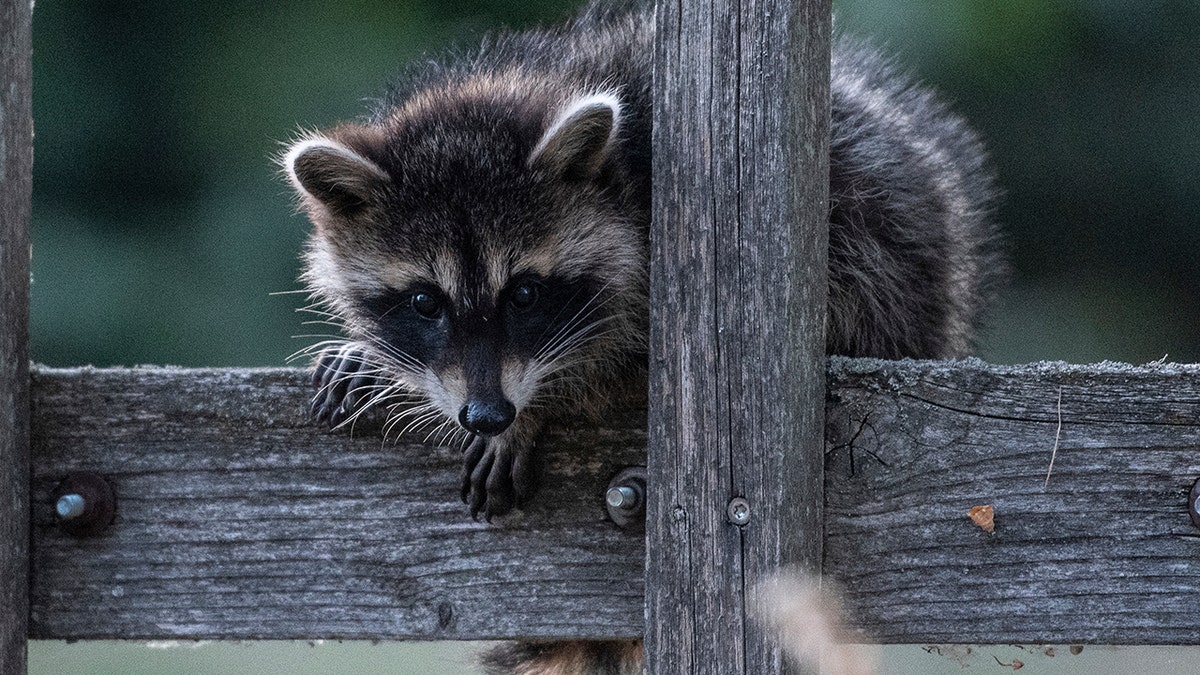
In this July 4, 2018 photo a raccoon sits on a fence in Prietzen, eastern Germany. (Paul Zinken/dpa via AP)
Nearly two dozen people were treated for rabies after a Colorado woman brought a baby raccoon into her home and showed it to her friends, creating “the largest rabies exposure case” in the county, authorities said Monday.
Weld County Department of Public Health and Environment in a news release said the raccoon tested positive for rabies. The woman found the animal in her backyard. It was apparently abandoned by its mother.
After taking the kit into her home, twenty of the woman’s friends asked to visit the baby, which health officials said was “unusual to see,” the Greeley Tribune reported.
"This was a baby wild animal, so I think there was some heightened interest to seeing a baby animal in the home," Rachel Freeman, the department’s health communication supervisor, told the paper.
Rabies Prevention Tips
To prevent rabies exposure, the health department suggests:
- Leave orphaned animals alone. Baby animals often appear to be orphaned when they are not. The parent animal may not return if people are too close.
- Do not feed, touch or handle wild animals and be cautious of stray dogs and cats
- Have dogs, cats, horses, and livestock vaccinated regularly by a licensed veterinarian
The woman contacted a local animal shelter she hoped would take and rehabilitate the raccoon, but they were unable to accept the animal, the paper reported. The shelter contacted the health department about the animal, which then tested it for rabies.
All twenty-one residents who came in contact with the baby raccoon have started receiving rabies exposure treatment, FOX31 Denver reported.
“This looks like a year for high rabies exposure in animals. It is very important that people not touch or go near wild animals.”
“This looks like a year for high rabies exposure in animals,” said Mark E. Wallace, Executive Director of the Weld County Health Department. “It is very important that people not touch or go near wild animals.”
Rabies is deadly viral disease that affects the nervous system, causing swelling of the brain and spinal cord, the health department said. It is spread through the saliva of an infected animal.





















